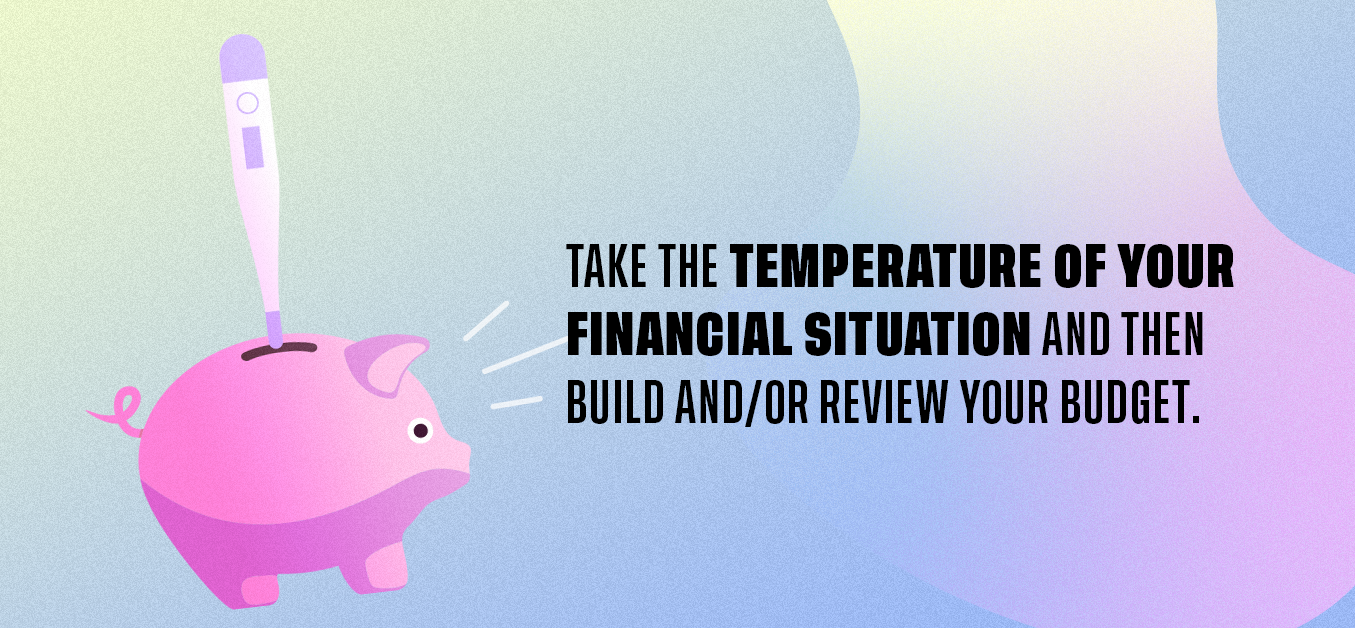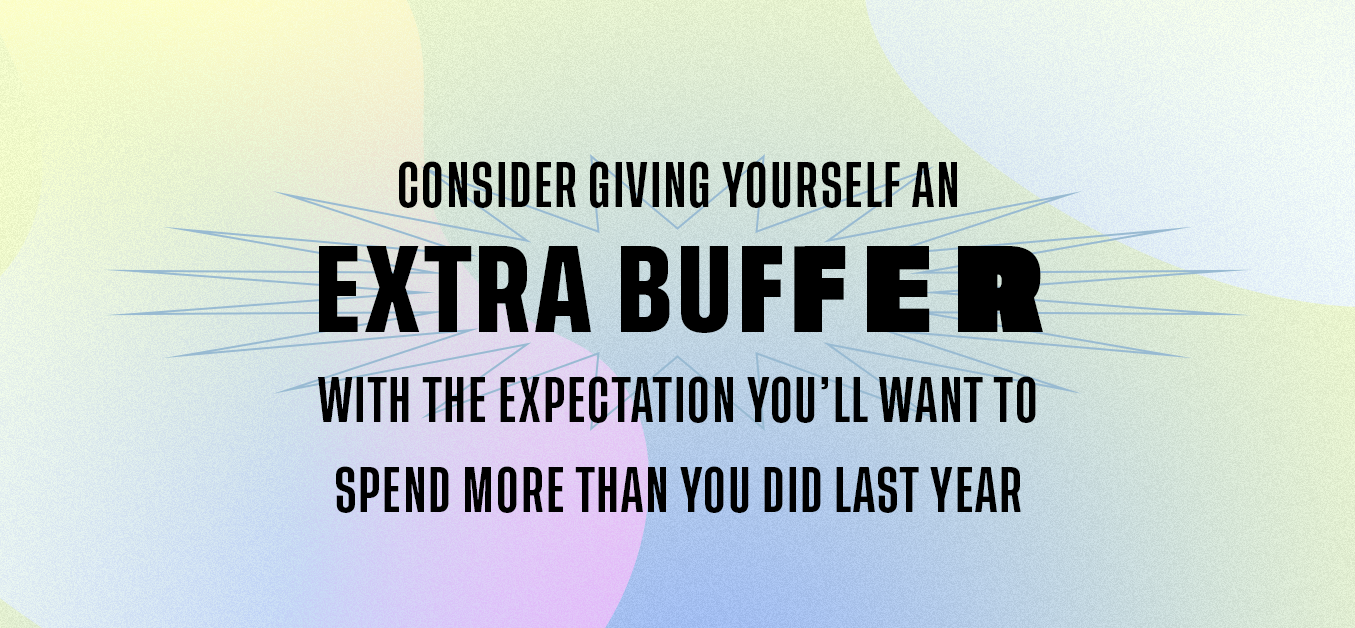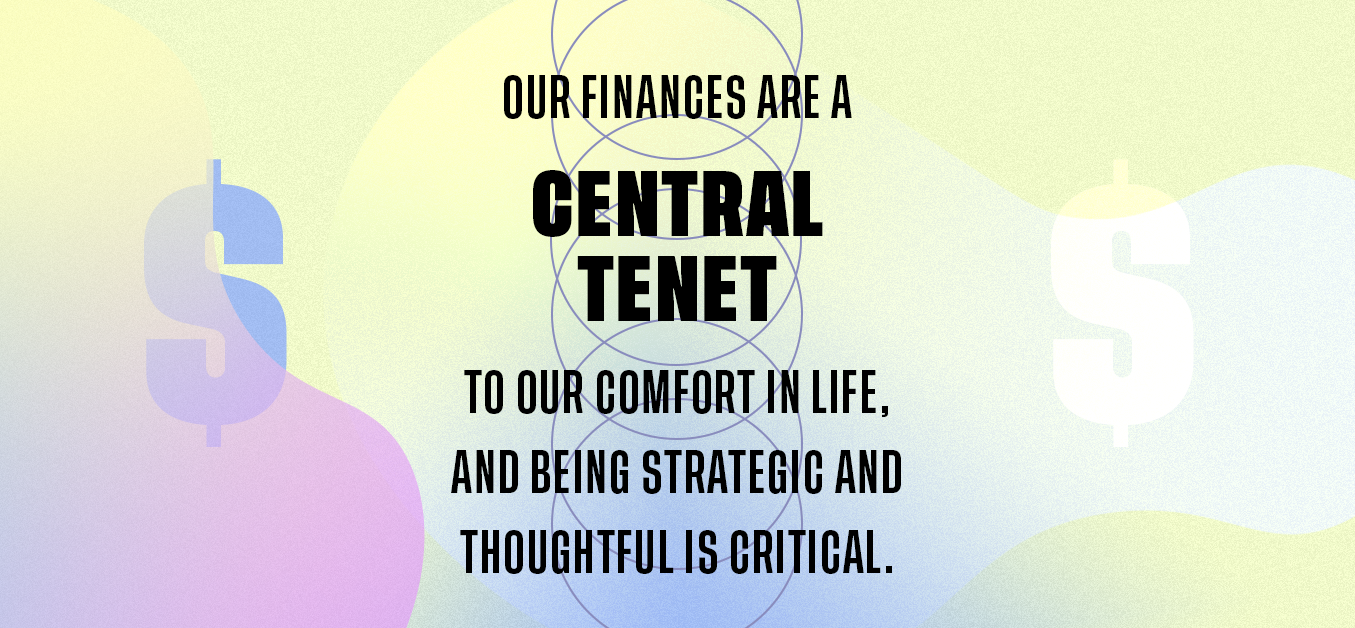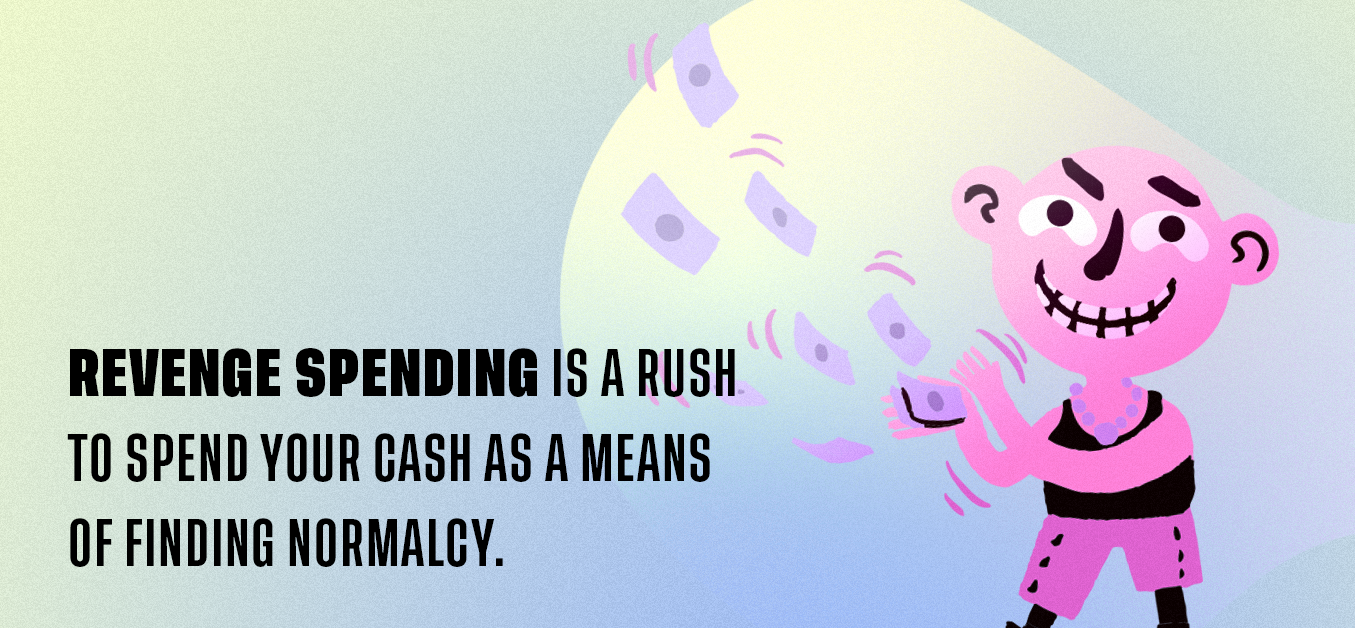What Does the "Return to Normal" Mean for Your Spending Habits?
Cool your jets, friends.
There is one (1) good thing that came from the pandemic: way less spending on dining out at restaurants and pubs.
Yes, we all immediately developed a crippling online shopping problem, but in any case, many Canadians were actually able to save more in 2020 than in a typical year.
As we make our way back into the bright new post-pandemic world, how should we prepare our finances? What COVID-era financial lessons should we keep with us? And what does this return to normal really mean for our spending habits?
Prepare Your Finances: Budget and Review

Do you have a sense of how your finances may have changed over the last year? From your day to day spending cash to your broader savings goals or investments, before you charge head first into Revenge Spend Summer (the more expensive version of Hot Girl Summer), make sure you’ve got a clear idea of where you stand.
Are you on track to meet your financial goals? Have you got cash to burn? Do you feel comfortable and secure with your current expenses, and your ability to pay for them?
Take the temperature of your financial situation and then move onto the next step of preparation: building and/or reviewing your budget.
This is a must, because in the coming months, the way you spend money is going to change. You’re going to spend more at restaurants, cafes, bars and events. You’re probably going to feel a desire to spend compulsively as we all try to make up for lost time.
So budget for it.

The first step is always to ensure your basics are covered; these are your emergency funds, your living expenses, debt payments, etc.
But if your financial situation allows, you might consider giving yourself an extra buffer with the expectation you’ll want to spend more than you did last year. If we are realistic about these expenses, we are better able to prepare and account for them without going over budget.
Don’t have a budget? Check out our post on the 50/30/20 Budget, a ratio-based budget that we love.
COVID Financial Lessons to Keep

What didn’t COVID toss into total uncertainty? Literally everything about our lives was heaved into a (hopefully) once-in-a-lifetime trip to the edge of the existential galaxy.
But all that uncertainty induced many Canadians to take a hard look at their finances, and to even develop better, healthier financial habits.
Among them? Hopefully, Canadians will continue to:
COVID put a lot of Canadian jobs in jeopardy and indeed put millions out of work or on reduced hours or pay. Not many got out totally unscathed. The result? Many Canadians had to develop more mindful, careful spending and saving habits.
This care is undoubtedly a good thing we should hold onto as we leave the pandemic-era. Our finances are a central tenet to our comfort in life, and being strategic and thoughtful is critical.
Just this time, maybe with a dash less global pandemic.
What Does the New Normal Mean For Our Spending Habits?

Well, to nutshell it: “Revenge Spending” is on the minds of every finance writer in North America. Revenge Spending is a rush to spend your cash as a means of finding normalcy in a world that has been so not normal for so, so long.
Is it telling that to feel “normal”, we all just want to spend money? Yes. But that’s a question for another day!
In all likelihood, our new normal isn’t really going to be like it was pre-pandemic. Things are different now. But for a variety of causes, it’s probable that life as a consumer will become more expensive in the months to come. (TL;DR, see: sea container shortage, semiconductor chip shortage, and impending inflation.)
Pair those big baddies with your impulse to purchase ten new pairs of jeans and, well, we’ve got a perfect expensive storm on our hands.
So as you return to the office, your social life, and “normalcy”, keep your finances in mind. It will be easy to get off track, but you owe it to yourself to take care of your money in the coming months. Treat yourself, just do it thoughtfully.
If you’re looking for a spending card with the rewards of a credit card but the control of a debit card, we would again suggest you check out the MogoCard. Because it’s a prepaid card, you can’t overspend or go into debt while using it. It’s a good vibe for keeping your impulses in check this summer.
Be smart, have fun, wear sunscreen. You got this! 💪
| GET MY FREE MOGOCARD |
This blog is provided for informational purposes only, isn’t intended as financial advice, and isn’t meant to suggest a particular financial strategy is suitable for any particular individual. If you’re unsure about a financial decision, you may wish to obtain advice from a qualified professional.
*Trademark of Visa International Service Association and used under licence by Peoples Trust Company. Mogo Visa Platinum Prepaid Card is issued by Peoples Trust Company pursuant to licence by Visa Int. and is subject to Terms and Conditions, visit mogo.ca for full details. Your MogoCard balance is not insured by the Canada Deposit Insurance Corporation (CDIC). MogoCard means the Mogo Visa Platinum Prepaid Card.